How much should you budget for a new roof in North Carolina?
The truth is, it depends on the type of roofing system you have. Also, which part of North Carolina you are situated in.
For a new roof, the price starts from $8,000 all the way to $70,000 or more.
In North Carolina, the average roof size is about 1,500 to 2,000 square feet.
Based on that, the average price estimate for a new roof can range from $8,000 to $14,000.
Therefore, the price is determined by the condition of the roof and several factors. In this blog post, we explore each factor and how it contributes to the overall budget.
Factors That Affect Roofing Costs
Materials & Labor
In a roofing project, material accounts for 40 to 60 percent of the budget. Whereas, labor accounts for 30 to 40 percent of it.
The percentage will vary based on the type of material you have chosen and the kind of expertise needed to complete the job.
In general, budget-friendly materials are easier to install and cost less. As a result, less expertise will be required to complete the job. For example, asphalt shingles.
Similarly, premium materials require more training and certifications and cost more. As a result, the contractor needs to be experienced enough to complete the job.
The level of technicality required to complete the job does add to the overall budget, for example, metal and tiles.
Here’s a table that provides a general breakdown of material and labor based on roofing type.
| Roofing Material | Material Cost Percentage(%) | Labor Cost Percentage(%) | Notes |
| Asphalt Shingles | 40 – 50 | 50 – 60 | Asphalt shingles are affordable and easy to install. It requires moderate labor requirements for installation. |
| Metal | 30 – 40 | 60 – 70 | Metal is lightweight, durable and robust. It is often referred to as the better alternative to asphalt shingles. The contractor must be experienced for installing metal roofs. |
| Wood Shakes/Shingles | 30 – 40 | 60 – 70 | Wood Shakes and Shingles provide a natural and rustic aesthetic. It is labor intensive due precise alignment and handling. |
| Clay or Concrete Tiles | 35 – 45 | 55 – 65 | These are heavy traditional materials. It requires structural support, increasing the labor costs. |
| Slate Tiles | 35 – 45 | 55 – 60 | Slate Tiles is a premium material with high durability and visual appeal. The labor costs are significant due to the fragility of the material. |
| Copper Roofing | 35 – 45 | 55 – 60 | Copper is one of the most premium metals available. It is aesthetic, highly resistant, robust and long lasting. The installation requires a very specialized labor. |
| Flat Roofs (TPO and EPDM) | 40 – 50 | 50 – 60 | TPO and EPDM are common for commercial roofs. It requires skilled labor for proper sealing and insulation. |
Sources: Roofscope, Inch Calculator & This Old House
Key Points:
- Simple roofs have low labor percentages (close to 50%). This is due to the easy installation process.
- Labor dominates the overall budget for complex roofs or premium materials. The contractors require specialized handling and expertise, and very strict safety measures are required for the project.
- Lastly, easy-to-install materials like asphalt lean towards a high material percentage. On the other hand, some materials like metal or tile require more knowledge and expertise. As a result, it increases the labor’s share.
Roof Size and Pitch
| Complexity Level | Factors | Estimated Cost per Square Foot | Notes |
| Simple | Low Slope < 4:12 – residential | $4 to $6 | A slope under 4:12 is common in residential roofs using asphalt shingles or rolled roofing. |
| Low Slope < 4:12 – commercial | $4 to $7 | A slope under 4:12 is standard in commercial roofs using EPDM, TPO and BUR. | |
| Straightforward Design | Basic rectangular design without valleys, dormer or any skylights. | ||
| Small Size <1,500 sq feet | Minimal material and labor requirements. | ||
| Moderate | Moderate Slope 4:12 to 6:12 – residential | $7 to $10 | Typical for suburban homes with architectural features. For example, dormers or valleys. |
| Moderate Slope 4:12 to 6:12 – commercial | $7 to $10 | Found in retail or institutional buildings. The design tends to be complex. | |
| Standard Features | Includes one or two dormers or even skylights. It does add some cost to labor and material. | ||
| Medium Size -1,500 – 2,500 sq feet | With larger areas, the cost increases proportionally. | ||
| High | Steep Slope 7:12 to 10:12 – residential | $10 to $15 | A steep roof requires more safety precautions and experienced labor. |
| Steep Slope 7:12 to 10:12 – commercial | $10 to $15 | Although rare, it is possible in commercial properties. When it occurs, premium materials like metal or tile are typically chosen. | |
| Complex Features | Includes multiple valleys, dormers or skylights. | ||
| Large Size – 2,500 to 4,000 sq feet | Requires significant materials and labor. It does add to the overall cost. | ||
| Material Specific Challenges | In these roofing systems, heavy or custom-fit materials are required, such as slate or metal. | ||
| Extreme | Very Steep Slope > 10:12 | $15 to $25+ | It is often found in high-end residential or architectural projects. |
| Highly Intricate Design | This involves intersecting valleys, curves, or custom designs, requiring advanced expertise. | ||
| Extra Large Size > 4,000 sq feet | Commercial or multi-unit buildings often face large-scale logistical challenges. | ||
| Multiple Layers or Structural Reinforcement | In many cases, this may involve removing old layers or reinforcing the structure to support heavy materials. |
Sources: Tesla, Endless Summer Roofing & Wikipedia.
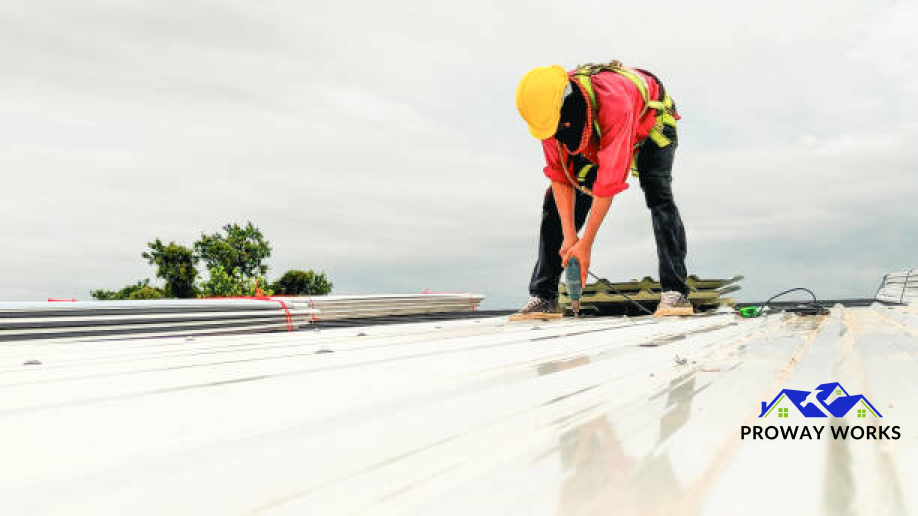
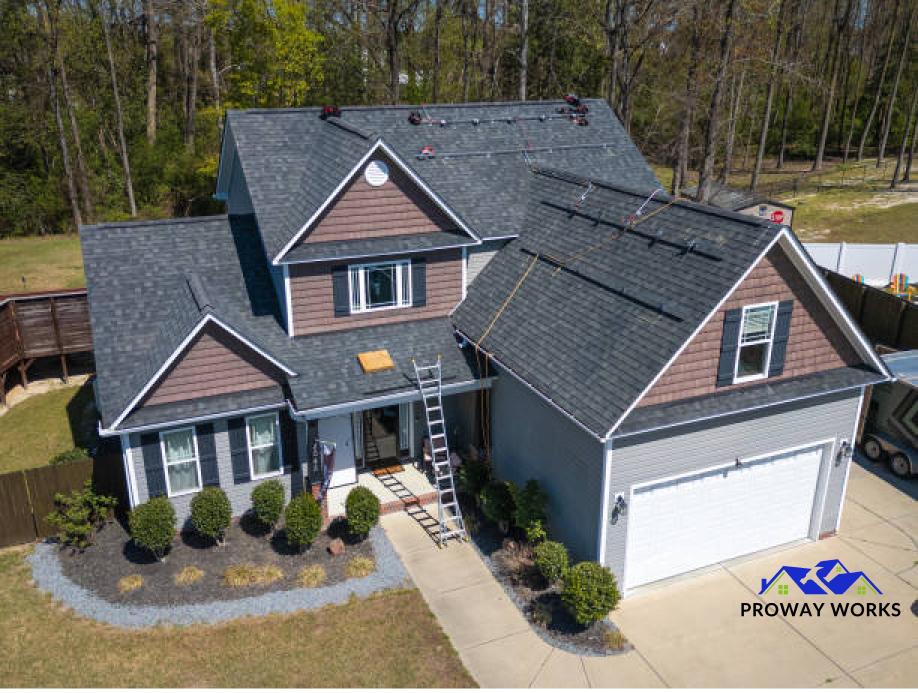
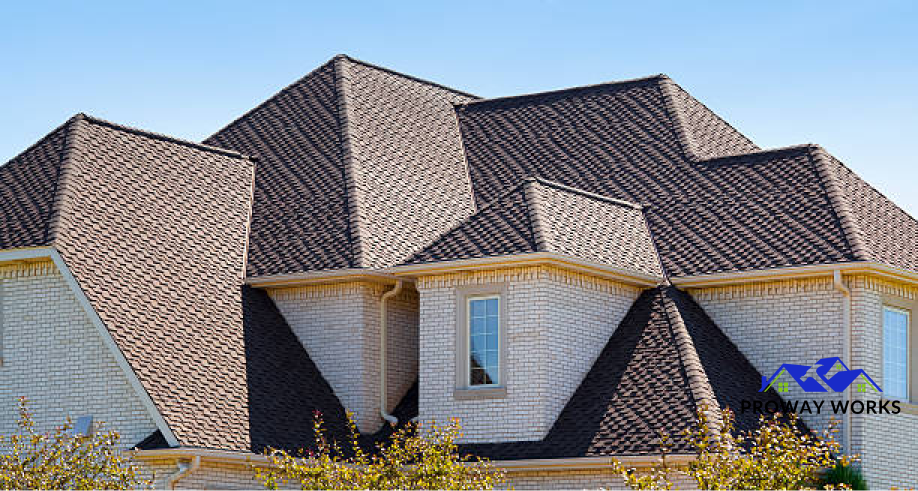
Location
The budget for roof installation varies for each area.
If you reside or operate your business in coastal areas like Wilmington or the Outer Banks, you may require a very specialized roofing material.
Due to coastal exposure, it must withstand hurricanes and salt exposure, which can increase the cost by 10-20%.
On the other hand, labor rates are higher in urban centers like Charlotte, Raleigh, or Durham than in rural and coastal areas.
This is due to the cost of living, population, annual income, weather conditions, and so on.
Roofing Removal and Disposal
For some roofing projects, we might need to remove the old layers and roof decks. At Proway Works, we never install one roofing layer over another.
At the same time, during our inspection, if we notice the deck is damaged, we recommend installing a new roofing deck before putting on the latest materials.
The reason behind this is simple: It helps to create a new foundation.
If it is not done, your roof might be susceptible to leakage, damage, and, in the worst case, structural collapse.
In terms of cost, removing and disposing of old materials typically costs $1,000 to $3,500. It depends on the size and material type.
A higher fee is charged for a heavier material like tile or slate. For a roof deck, the cost can range from $2,000 to $5,000, depending on the material and size of the deck.
Seasonality
In North Carolina, the roofing demand usually spikes during the spring and fall seasons. In these times, the weather conditions are mild and predictable.
As a result, it makes it an ideal time for roofing projects. You may notice many well-known contractors are busy or unavailable at these times.
Due to scarcity, the cost of the roofing project does increase to some extent.
However, many homeowners opt for roofing projects during the winter, known as the “off-peak” period.
Roofers are more available and offer more competitive pricing. However, unpredictable weather conditions can affect the project timeline.
Additional Factors
Inspection
Conducting an inspection is crucial before starting any roofing project. It helps to understand the current state of your roofing system and identify any existing or potential issues.
Based on our findings, we create a detailed estimate for your roof.
At Proway Works, we don’t charge for inspection. However, there are roofers in North Carolina who charge a fee.
It can range from $100 to $500, depending on the contractor and their experience.
Insurance
There are several types of insurance are available in the roofing world. The coverage will vary for each contractor, type of project, and the work’s requirements. If your roof was damaged by weather, your homeowner’s insurance can cover part of the replacement cost.
However, insurance costs for a typical roofing project can range from $7,000 to $15,000 in North Carolina. This applies to small—to medium-sized contractors with a few employees.
Flashing
Flashing is designed to direct water away from joints, seams, and roof penetrations, preventing leaks and damage.
By efficiently channeling water into gutters, it reduces the risk of pooling and overflow.
A typical flashing system costs between $400 and $2,000.
The exact amount depends on the project’s complexity, hourly rate, and type of material.
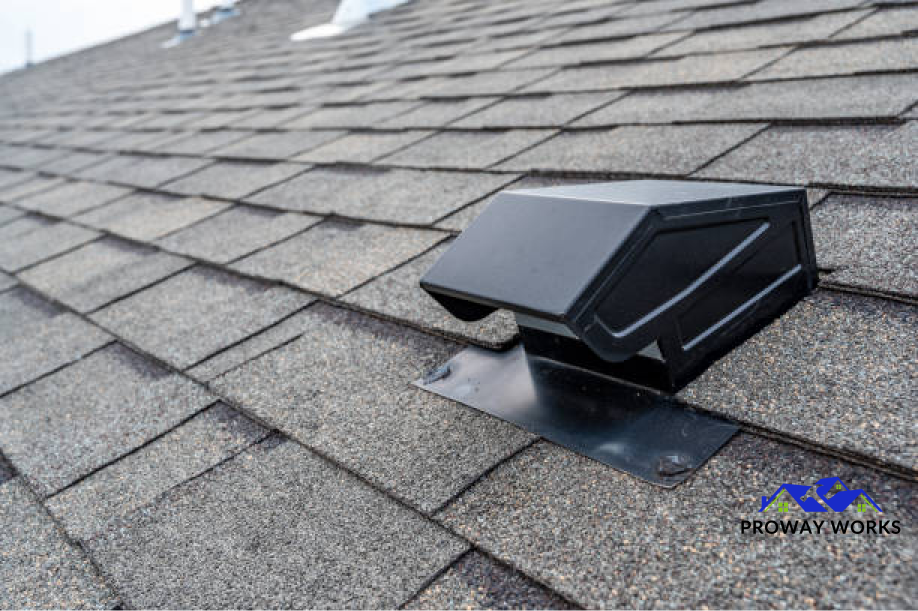
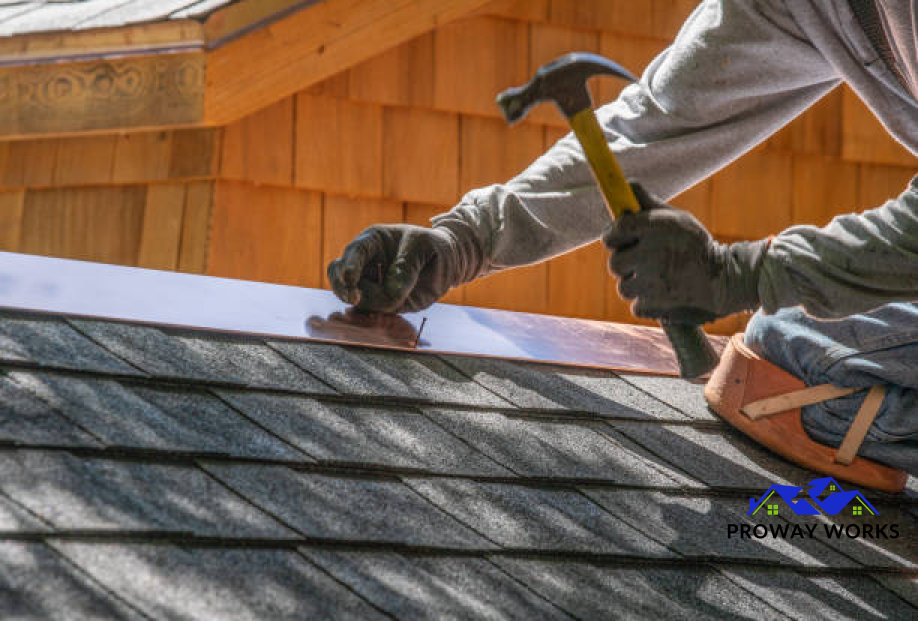
Ventilation & Insulation
Ventilation and Insulation systems are very important parts of a roofing system. Although they are distinct, they play complementary roles.
First, roof ventilation involves moving air in and out of the attic. Its job is to regulate temperature and moisture levels.
By getting rid of hot air from the attic in the summer, it prevents overheating. It also minimizes condensation by allowing moist air to escape.
Similarly, insulation minimizes the heat transfer between the interior of the property and the external environment.
Its job is to keep the building warm in winter by preventing the heat from escaping. Also, keep the building in the summer by reducing heat again.
All in all, both of these components help to lower energy costs. Also, improve energy efficiency.
In terms of estimated cost, roof ventilation and insulation typically cost between $1,500 and $5,000 or even more. The exact price will depend on the type of system, materials, size, and other factors.
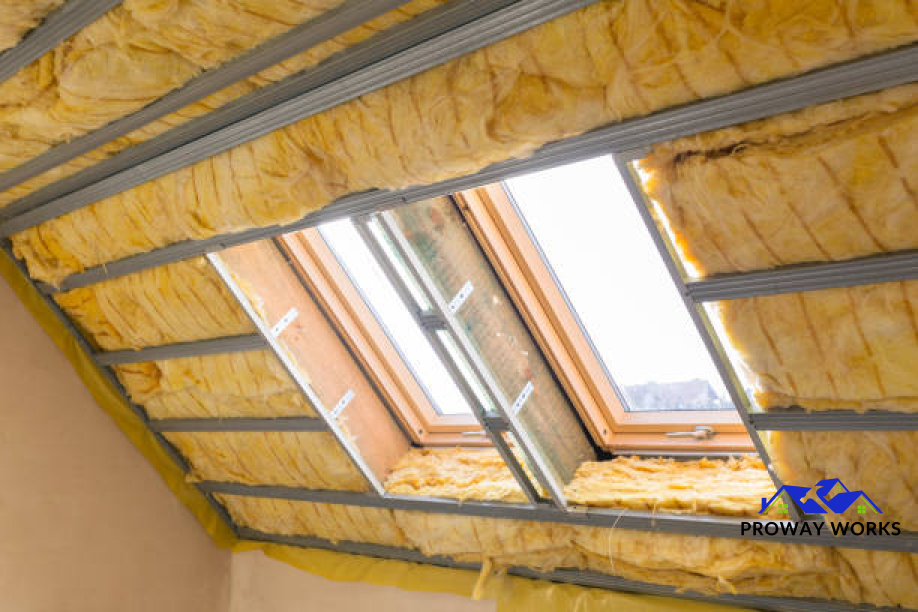
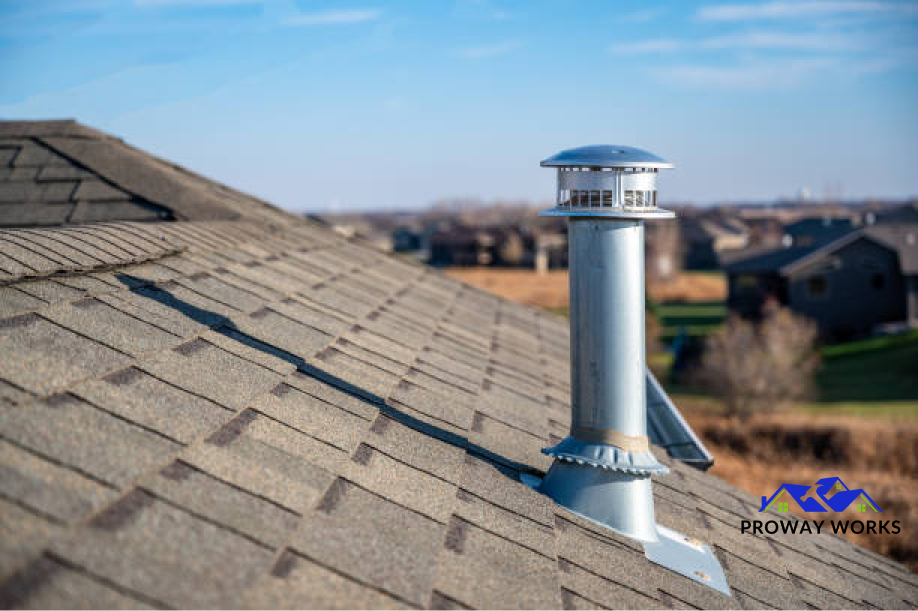
Gutters and Siding
A roofing system is incomplete without gutters and siding.
The main job of the gutter is to channel rainwater and snowmelt away from the roof and the foundation, preventing water pooling and damage.
Conversely, siding acts as a protective barrier against extreme weather conditions, protecting the underlying structure from damage.
In terms of estimated cost, gutters typically cost around $500 to $4,000, and siding tends to cost around $5,000 to $30,000. The budget will depend on the house size, material, and labor rates.
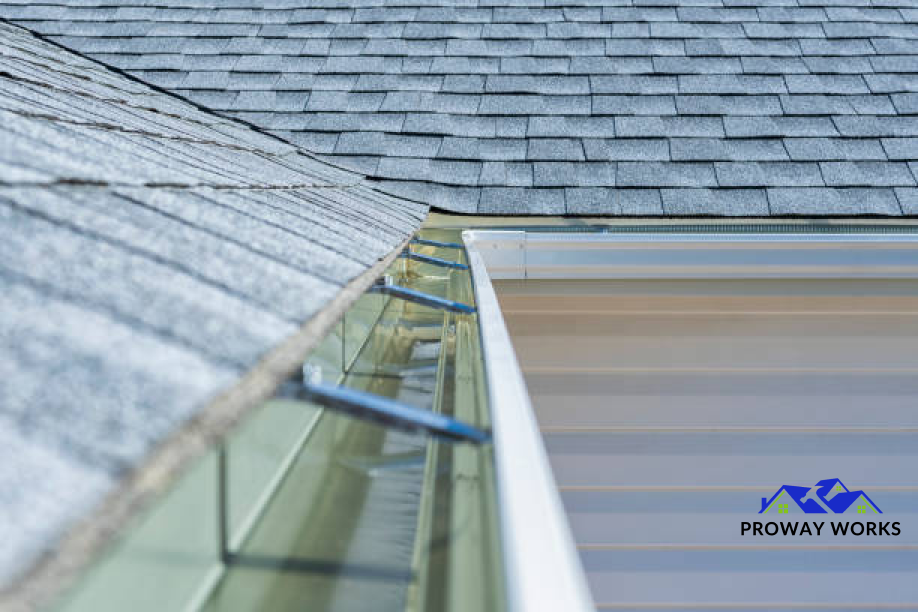

Skylights (Optional)
Skylights are windows installed in a roofing system. They allow natural light to enter the building and serve as a functional and aesthetic part of a roof.
By bringing in more natural light, they reduce the need for artificial light during the day. Some skylights are openable, letting more fresh air enter the building. As a result, they improve airflow and reduce humidity.
A skylight might cost from $150 to $3,500. The more premium and custom-designed material you use, the higher the price will be.
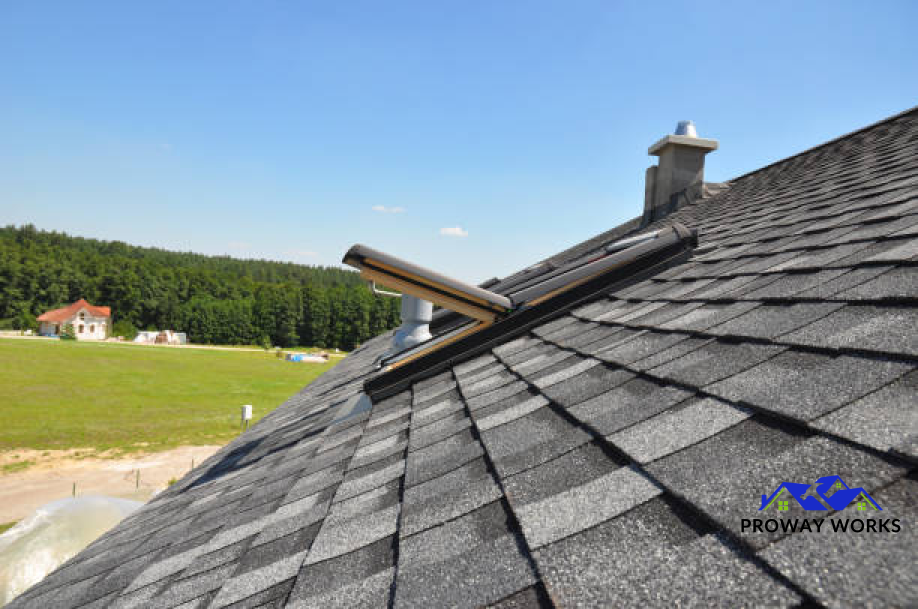
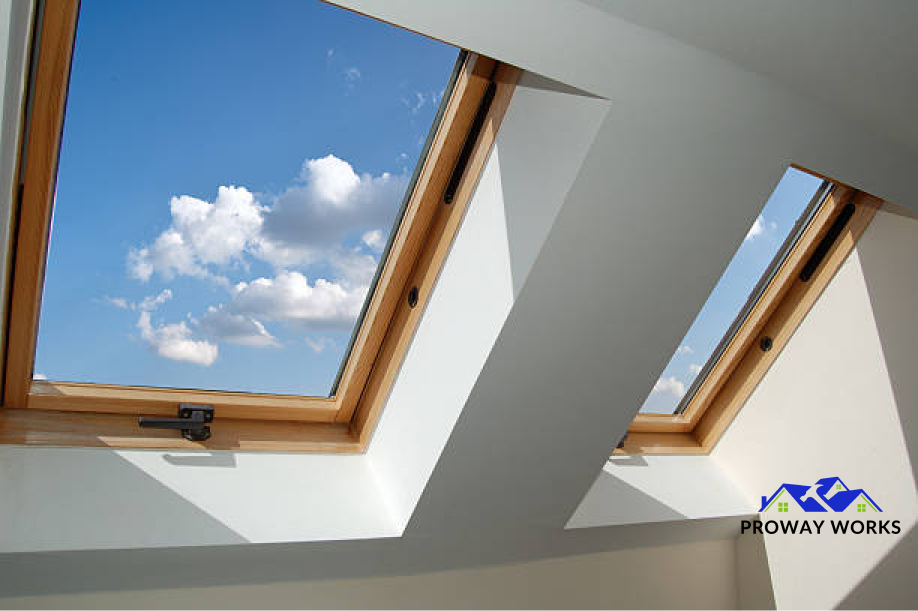
DIY Roof Replacement vs Professionals
A roofing project is a massive task. Even as veterans, it takes us years to understand our craft and execute it.
For a DIY roof project, you likely lack the required training and education to replace a roof successfully. To homeowners, we don’t recommend the DIY approach. It is due to several reasons:
- While DIY roof replacement may require a lower upfront cost, it is highly likely to be installed improperly. This can void your warranty and lead to leakage, damage, or even structural issues.
- In North Carolina to undertake a roofing project, it is mandatory to be licensed and insured for projects worth above $30,000. If not followed, law actions could be taken.
- A seasoned contractor has access to the best tools and equipment. It is unlikely that a homeowner has the same access.
- Lastly, a professional roofer can complete a roofing project much faster than a DIY project. In the long term, this will save you time and money on repairs.
The key takeaway is that DIY is suitable for small and simple roofing projects. However, hiring a professional contractor is the best option for large and complex roofs.
Tips to Reduce Cost for a New Roof
Get Multiple Quotes
If you are looking to install or replace your roof, get multiple quotes from different contractors. We should get at least five. It will help you to compare the estimated cost and service from each contractor.
Also, it is best to avoid a low quote.
A roofing project requires a significant investment, and for quality work, you need to pay a premium. When done right, your roofing system will last for decades.
Roofers with low quotations tend to cut corners to minimize their costs. As a result, you will likely need to replace your roof in a few years.
Bundle Services
A roofing system has multiple components, including gutters, siding, skylights, flashing, and many more.
To maximize your investment, try to combine your roofing project with these components.
If you negotiate a fair price, the contractor is likely to provide you with a package discount.
Consider Financing Options
In North Carolina, many contractors offer several payment plans.
They have partnered with well-known financial institutions to finance your roofing project. The goal is to spread the cost over time without straining your budget.
The price can be spread over months and years at your convenience. Make sure to consult with your roofer beforehand.
Schedule During off-season
As stated earlier, roofing season spikes during the spring and fall season. You can save 5-10% from your budget if you consult during the winter.
At this time, due to weather unpredictability, many homeowners don’t opt for roofing projects.
As a result, many contractors are available and are willing to provide a discount for your roof.
Does Replacing a Roof Increase Home Value
According to Remodeling Magazine, a new roof increases home resale value by a national average of $12,000.
At the same time, the survey revealed that homeowners recouped an average of 62.9% of the installation through increased home value.
In the United States, asphalt shingles are used in 75% of new roofing projects annually.
The same survey by Remodeling shows that an asphalt shingle project costing $18,488 can increase a home’s value by $11,633.
It should be noted that roofing is one part of the property that can impact its value. To maximize or increase home value, you need to consider an overall overview of the property.
Conclusion: Choose Proway Works in North Carolina
At Proway Works, we have successfully completed more than 10,000 roofing projects.
If you reside in North Carolina and need any help with your roof, we’re here. Our team is trained and certified by GAF, Owens Corning, HAAG, CertainTeed, Da Vinci, and several others.We have been operating in your local areas for the past thirty years. Rest assured, we are well-versed with all the local building guidelines and codes.

Pingback: The Benefits and Drawbacks of Slate Roofing in Durham, NC | Proway Works